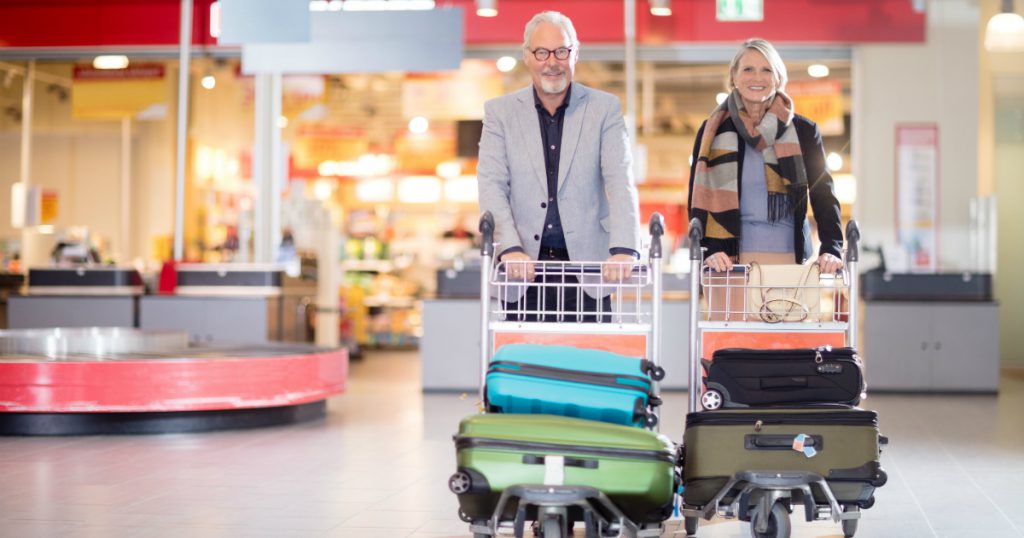With news of coronavirus, or COVID-19, coming out nearly 24/7, it can be hard to keep up with the information that is most important for you and your lifestyle, especially if you have to travel in the near future and don’t want to get sick. If you have a trip on the horizon, consult this helpful roundup of the most pertinent tips, frequently asked questions, and health info to learn how to stay healthy while traveling.
Healthy Travel Tips
Do you need to wear a face mask to stay healthy while traveling?
According to the WHO, here are the latest guidelines on the types of face masks that should be worn, when to wear them, how to properly wear them, and how to dispose of them safely.
For more information on masks, here are more guidelines from the CDC.
How does the coronavirus affect older adults?
People of any age can become infected, but older seniors, those with certain chronic medical conditions (like asthma, heart disease, and diabetes), and individuals with compromised immune systems seem to be more vulnerable to becoming ill and should take extra precautions. Since there is no vaccine for coronavirus yet, experts advise people of all ages to protect themselves from the virus by using the basic guidelines below.
What are the most important precautions to take when it comes to the coronavirus?
- Cleanse your hands frequently and thoroughly (for at least 20 seconds) with soap and water or alcohol-based hand rubs.
- Sneeze or cough into a flexed elbow or tissue—do not use your hands.
- Don’t touch your face; especially your mouth, eyes, and nose.
Should you worry about coronavirus and air or train travel?
If not in a high-risk group, and you still feel it necessary to travel, the World Health Organization hasn’t yet advised canceling all travel. If not visiting affected areas, planes, trains, and airports shouldn’t be the highest infection risk because the virus doesn’t seem to be airborne, and most airplanes contain very effective air filtration systems. How do you get coronavirus? The higher risk of infection comes from sneezes and coughs from people in your immediate vicinity (around three to six feet) and even more so from touching contaminated surfaces. Any time you are in more confined areas with many other people, like planes and trains, your exposure risk could increase.
For this reason, experts recommend using alcohol wipes to disinfect the arm rests, tray tables, seat belt buckles, and door and toilet flush handles you come in contact with. And, once again, avoid touching your face, nose, eyes, and mouth. While alcohol wipes may not prevent coronavirus, they can aid in minimizing exposure to the virus and help you to stay healthy while traveling.
Some things to keep in mind when it comes to staying healthy when traveling:
- Know that your travel could be disrupted, and that popular destinations or attractions may have limited hours or potentially be closed altogether.
- The CDC recommends staying current on flu vaccines, taking flu antivirals if prescribed, and taking everyday preventive actionsand practicing good health habits to limit the spread of germs and maintain general health.
- Stay up-to-date by checking for CDC Travel Health Noticeson the CDC website, find World Health Organization Coronavirus Information on the WHO website, and keep track of affected areas with the Novel Coronavirus (COVID-19) Map.
- Don’t forget to wash your hands with soap and water frequently and for at least 20 seconds, especially after using the bathroom; before you eat; and immediately after coughing, sneezing, or blowing your nose.
- Stay hydrated and well rested.
- Most importantly, stay home if you are ill, showing symptoms or suspect that you may be getting sick, or are in a high-risk group.
Whether you’re traveling on a long-planned vacation or for necessity, staying healthy during your journey is important. Keeping these precautions and tips in mind can help you avoid getting sick while on your next trip.
If you want more flexibility in your travel plans, you can change or cancel your trip for any reason when you purchase an AARP® Travel Center Powered by Expedia® Vacation Waiver.
Header image via Tyler Olson/Shutterstock
